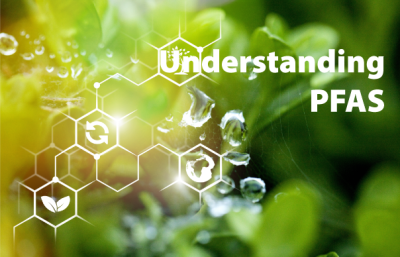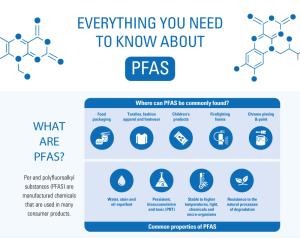What to Know About PFAS

On April 10, 2024, EPA announced drinking water regulations for six PFAS. This new requirement includes monitoring (implemented by 2027) and compound limits (starting in 2029).
Per the Unregulated Contaminant Monitoring Rule (UCMR), Cobb County Water system (CCWS) was required to monitor quarterly and inform our customers of UCMR results. The table below shows the detected PFAS from the sampling period (UCMR5).
Continuing to deliver excellent drinking water that meets or exceeds all state and federal standards remains a top priority. Working with our wholesale water provider, the Cobb County-Marietta Water Authority (CCMWA), we will be prepared for the new compliance requirements.

Data & Lab Reports from CCWS PFAS Analysis
-

- Summary of Results (8/23-5/24) - UCMR-5-Data-Display-2024 (excel)
- Analytical Reports:
- August 2023 - UCMR5 - GA0670003 - SE1 -Cobb County
- December 2023 - UCMR5 - GA0670003 - SE2 - Cobb County
- February 2024 - UCMR5 - GA0670003 - SE3 - Cobb County
- May 2024 - UCMR5 - GA0670003 - SE4 - Cobb County
PFAS FAQs
What are PFAS?
Perfluoroalkyl and polyfluoroalkyl substances (PFAS) are human-made chemicals found in many consumer products. They are created for purposes of repelling, and resisting heat and sticking. PFAS are also known as “forever chemicals” because they are long-lasting and break down very slowly over time.
How long have PFAS been around?
PFAS have been used in products since the 1940s.
Where can PFAS be found?
PFAS can be found everywhere. They are in stain, oil, and water-resisting products like rain jackets, carpets, and sofas. They are also found in non-stick pans, dental floss, makeup, skincare products, food packaging, paper straws, dust particles, and fire-extinguishing foam.
Is there PFAS in water?
About 20% of human exposure to PFAS comes from the water, according to the U.S. Environmental Protection Agency (EPA). The EPA set a limit for PFAS in drinking water on April 2024 to reduce PFAS exposure for millions of people.
Are PFAS safe?
Exposure to PFAS can present a serious health risk to humans. Information from Georgia's Department of Public Health on how to limit your exposure is available at: https://dph.georgia.gov/environmental-health/chemical-hazards/pfas
Where can I learn more about Cobb County's drinking water?
CCWS purchases drinking water from Cobb County-Marietta Water Authority (CCMWA). CCMWA samples and tests water regularly to understand and monitor these chemicals. Each year, CCMWA provides a report to CCWS detailing the tests and results for Cobb’s drinking water. This information is included in the Water Quality Report available to all customers each month of June.
What's happening with PFAS in Georgia?
Georgia's Environmental Protection Division (EPD) has a drinking water monitoring initiative and has created an Interactive Story Map with information about PFAS as well as EPD’s current and historical drinking water and surface water monitoring in Georgia.
